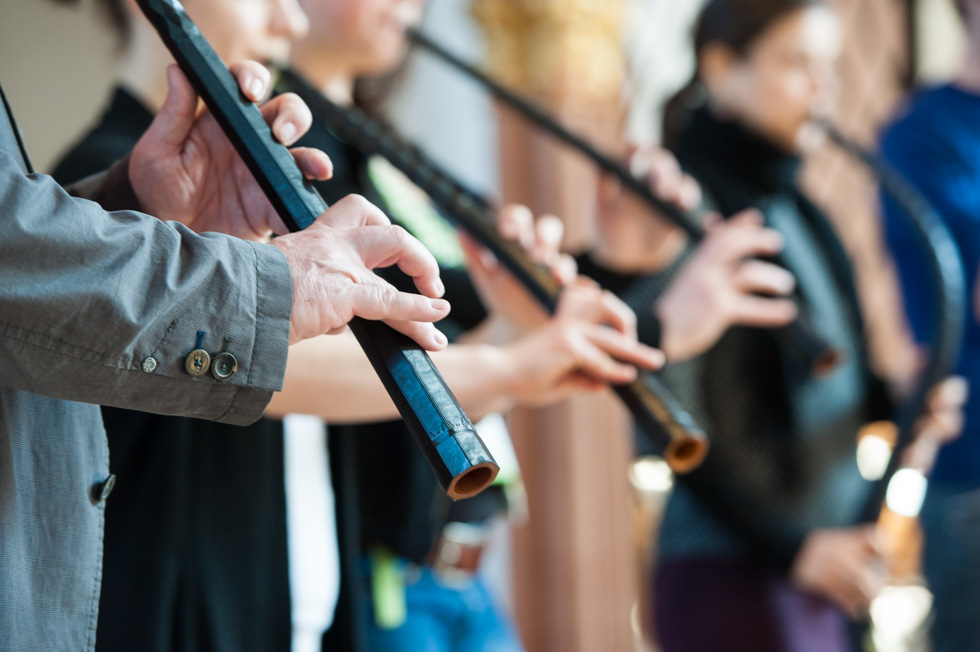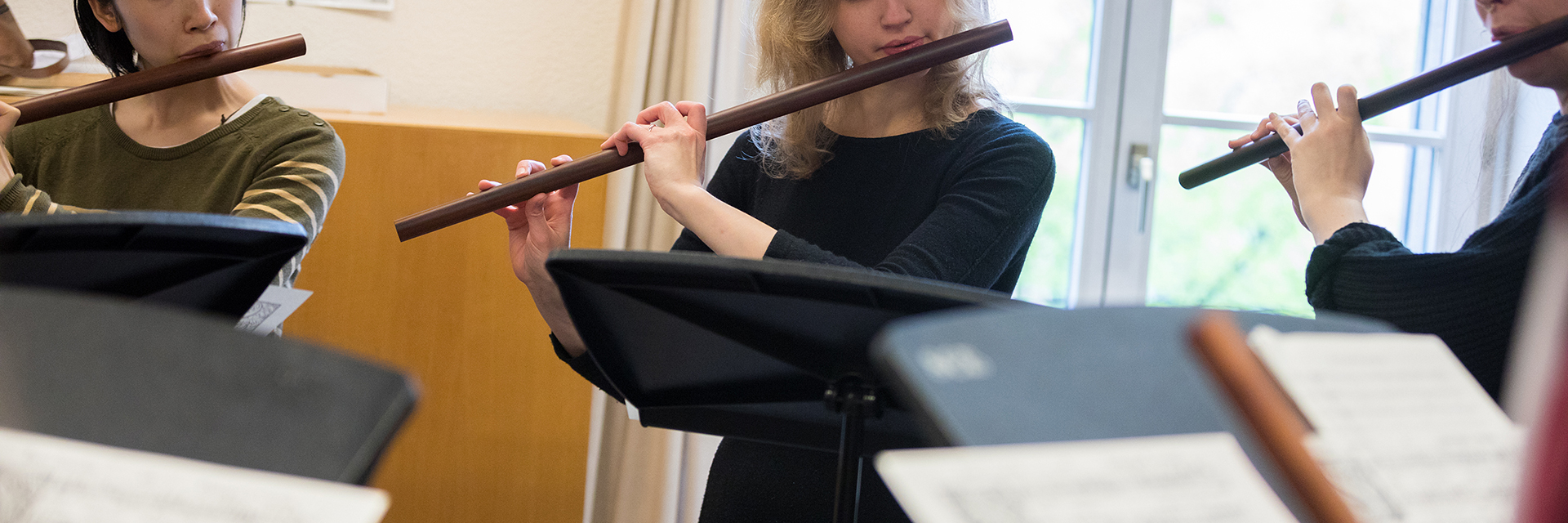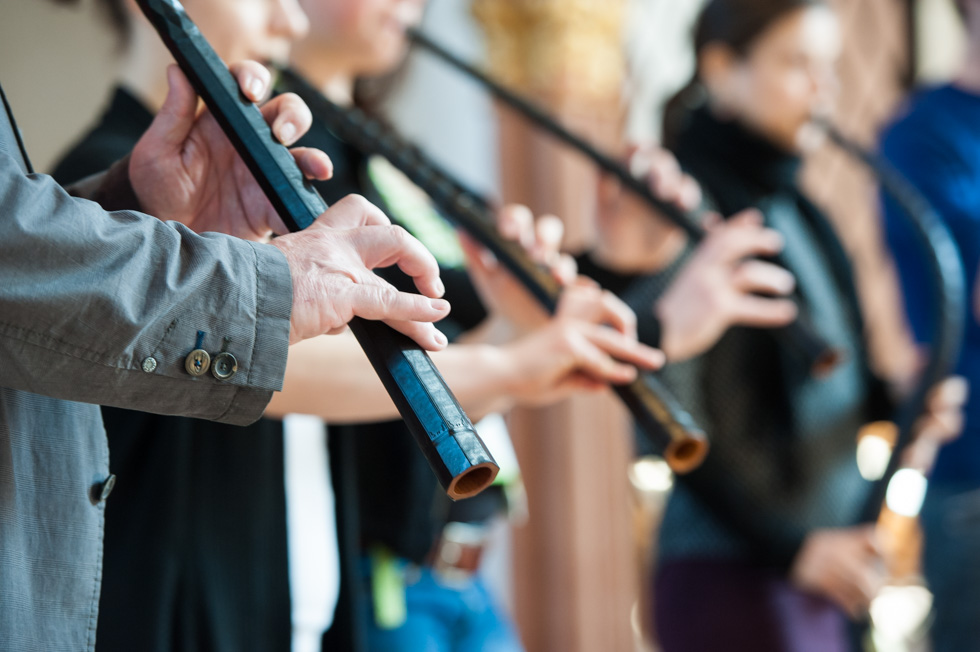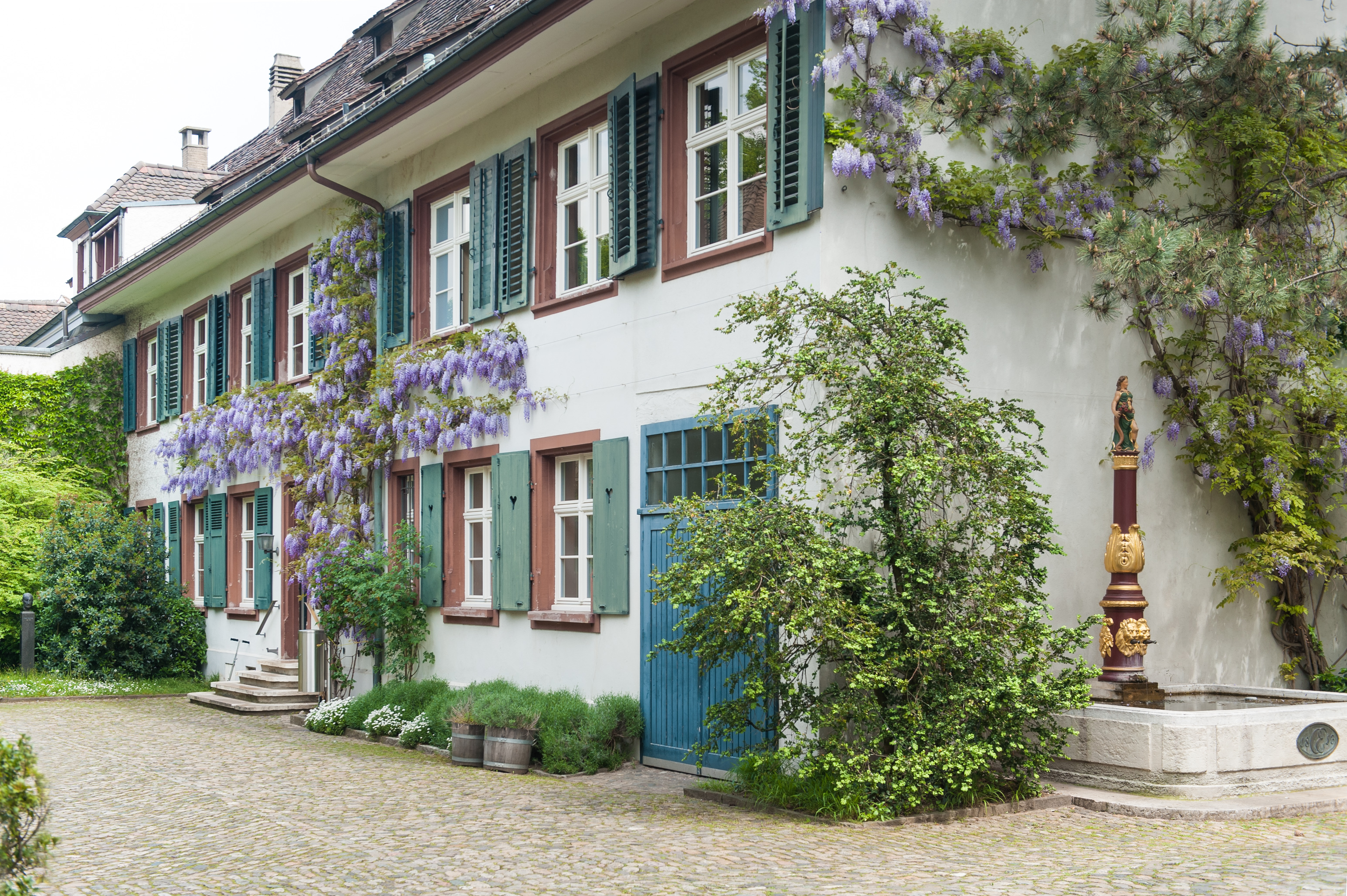Master of Arts in Music Pedagogy - Early Music Instrument /Voice
Historically-informed study of music pedagogy
Key data
- Degree
- Master of Arts FHNW in Musikpädagogik – Alte Musik instrumental / vokal
- ECTS points
- 120
- Study start
- in autumn
- Duration
- 4 semesters
- Teaching language
- German (level B2 is required)
- Place
- Campus Musik-Akademie Basel
- Application fee
- 200 CHF
- Semester fee
- 750 CHF (CH) | 1000 CHF (EU/EFTA) | 1250 CHF (Not-EU/Not-EFTA) More Fees
The registration window is open from mid December to the end of January.
Mobile navi goes here!
Once relegated to the cultural fringes, Early Music has been enjoying a sustained revival, as evidenced, among others, by its inclusion in the music pedagogy study programmes offered by music schools and universities.
The Schola Cantorum Basiliensis (SCB), together with the FHNW School of Music (HSM), offers a Master’s degree in Music Pedagogy with an Early Music specialization. Teaching methodology specific to Early Music as well as courses in the major subject take place at the SCB, while the HSM is responsible for the general music pedagogy courses. Alongside teacher training, the programme also nurtures the students’ own artistic development as a harmonious combination of these two aspects, one that is essential for a truly effective and fruitful pedagogical qualification. Students will also acquire a sound background in theoretical and practical subjects relevant to Early Music.
What sets certain major instruments (baroque bassoon, baroque oboe, recorder, harpsichord, voice, lute, organ, viola de gamba) apart from others is a current and ongoing demand for teachers of these instruments. Consequently, the SCB offers these majors as part of its regular MA in Music Pedagogy programme. Other instrumental majors that exist in a modern form (violin, cello, fortepiano, flute, trombone etc.) are only offered through the SCB under special conditions and generally require a previous Master's degree on the modern instrument.Such holders of a recognised Master’s degree may, in close consultation with the FHNW School of Music, tailor their Music Pedagogy studies to their chosen instrument. The relevant instrumental teaching methodology classes are dispensed by the HSM.
Please note that the SCB may not offer the MA programme in Music Pedagogy every year.

No social media links available.


